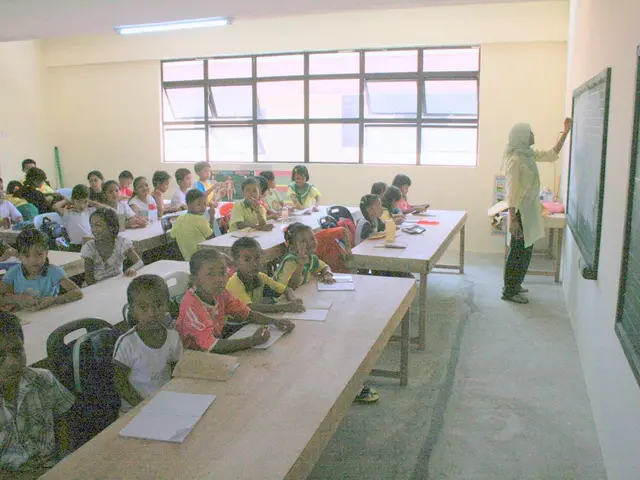Encouraging Kids with Constructive Compliments
Strengthening a child's self-esteem and resilience is crucial for their future success. Here are effective strategies for teaching and reinforcing positive affirmations among children:
- Model Positive Self-Talk: Children learn by example. Lead by expressing affirmations aloud, such as "I am confident in my abilities," or "I am always growing." This demonstrates to children the importance and benefits of self-encouragement [2][5]. Encourage children to repeat simple affirmations every day, like "I can achieve my goals," or "I will face challenges head-on," which helps internalize these positive messages [2].
- Supportive Environment: Incorporate affirmations into daily routines, such as during morning rituals or before bedtime, making them part of the child's everyday life [2][5]. Get creative with affirmation activities like making a strengths collage or writing affirmation cards, helping children visually and tangibly connect with their positive traits [1]. Encourage children to write and exchange kind notes or affirmations with peers or family members, fostering self-reflection and mutual appreciation [1].
- The Power of Yet and Growth Mindset: Introduce children to the concept of the "power of yet," emphasizing that "I can't do this yet" signals ongoing growth and learning, rather than failure [4]. Pair affirmations with this mindset, such as "I haven't mastered this yet, but I will," to help children reframe challenges and build confidence [4].
- Specific Praise and Effort Encouragement:
- Process Praise: Focus on praising the effort and process rather than just results, such as "I've noticed your determination in solving that problem." This approach increases persistence and resilience [2].
- Praise Sandwich Technique: Sandwich constructive feedback between positive statements to reinforce affirmation and encourage growth [2].
- Effort-Tracking Charts: Use charts to help children visualize their daily achievements and efforts, reinforcing the connection between positive self-talk and tangible progress [2].
- Building a Perseverance Toolkit: Help children create their own perseverance toolkit, which includes a set of personalized affirmations, strategies for staying motivated, and reminders of past successes. This empowers them to confront setbacks with confidence [4].
- Honesty and Positive Mindset: Teach children the value of honesty and positive self-talk as part of their broader self-improvement. When children make mistakes, encourage them to reflect and use affirmations to approach challenges with a positive attitude, correcting mistakes with love and empathy [5].
By adopting these strategies, caregivers and educators can help children develop a strong foundation of self-esteem, resilience, and the ability to overcome life's challenges [1][2][4].
- Integrating affirmations into the family's health-and-wellness routines, such as morning rituals or bedtime, can foster a sense of consciousness and mental health in children, encouraging them to embrace their inner strength [2][5].
- Modeling growth mindset and positive affirmations as a parent can have a significant impact on a child's ego and resilience, as they learn the power of never giving up and embracing challenges as opportunities for growth [4].
- Family health can be improved by creating a supportive environment that encourages the sharing of kind notes or affirmations among family members, promoting self-reflection, mutual appreciation, and overall well-being [1].
- Supporting a child's parenting journey by reinforcing process praise, the power of yet, and specific effort encouragement can help them develop a competitive edge in school, work, and life, fostering their happiness and success in the long run [2][4].








